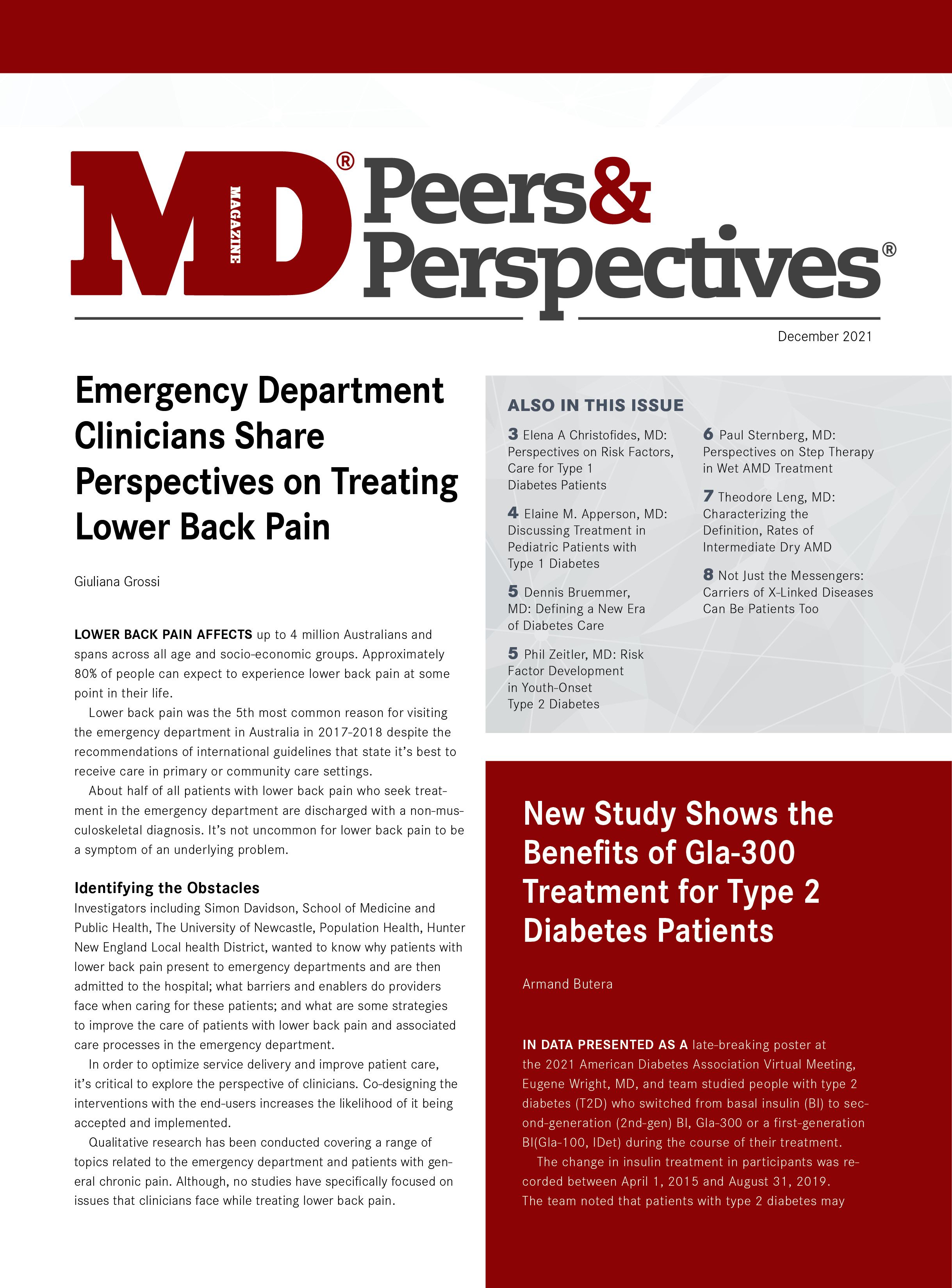Publication
Video
Peers & Perspectives®
Elaine M. Apperson, MD: Discussing Treatment in Pediatric Patients with Type 1 Diabetes
Author(s):
Elaine M. Apperson discusses treating diabetes in a pediatric population, including diabetes burnout, the effects of food deserts, and the consequences of COVID-19 on treatment.
In an interview with HCPLive surrounding the 2021 American Diabetes Association virtual meeting, Elaine M. Apperson, MD, Prisma Health-Upstate, discussed the cost-benefit of a carbohydrate diet for pediatric patients with type 1 diabetes (T1D).
Apperson noted that she does not want to vilify carbohydrates, citing her adage is to fit diabetes into the life, rather than fitting life and diet around diabetes.
She mentioned her descriptions when talking with families about carbohydrates include describing glucose as Lego and encouraging families to choose carbohydrates in a smart way.
"I think you don't want to ostracize the child with diabetes in the household, you want to make it something that the family can do together, you want to make it simple, '' Apperson said. This is just a basic ideology. And so in terms of incorporating it as a treatment for diabetes, you just adopt the principle that minimizing simple sugars is the best way to go.
Apperson also touched on the effects of both the COVID-19 pandemic and the consequences of food deserts, where her attitude during care might shift.
She observed that judgment towards patients in these situations, particularly regarding diet options, will lead to less willingness to come in or a sense of fear if they do have to visit the office
"I often feel like without even knowing it, we pass on an error of judgment, we take these blood sugars, we look at them, and we're like, no, this is kind of high, or you didn't check as much as today,” Apperson said. “I try to exercise the utmost discipline to only focus on the positive. And maybe, as we're wrapping up, just find some areas of improvement.”
She also mentioned that while her practice expected to have seen a diminishment of patient follow-up visits during COVID-19, patients have maintained follow-up visits.
However, she noted that there have been other factors at play, including an increase in stressors leading to mental health complications.
“I think the biggest thing I have noticed and my colleagues would say the same thing, is just the absolute profound increase in anxiety and depression in our adolescents with type 1 diabetes,” Apperson said.
She noted the difficulties of isolation with virtual learning, a lack of mental health providers, and on top of that a chronic disease like Type 1 Diabetes have led to a drop off in adherence with diabetes management tasks.
Apperson also noted the teplizumab approval would be great if it was available, but does not consider it to be the end-all be-all agent.
“My understanding of the way that type one will be ultimately prevented from an immune standpoint is that it's not going to be a single agent, it's going to be like cancer therapy, it's going to be a concoction,” Apperson said.
However, she expressed her excitement for the future of innovations in diabetes technology, including offering newly diagnosed patients an automated system for insulin and offering the ability to go through their day with a normal range of blood sugar, noting its positive effect on quality of life.
“With further collaboration between all these pump in sensor companies and widening the collaboration and being able to offer more and more, I'm super excited,” Apperson said. “I'm excited about the biological stuff too. But with the technology, if it's not working, or the patient's not tolerating it, you take it off, turn it off, try something else. So I find myself drawn more to what we can offer in the office to a patient, show them a demonstration, get them excited about it.”






